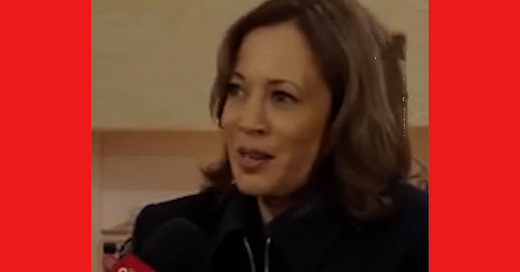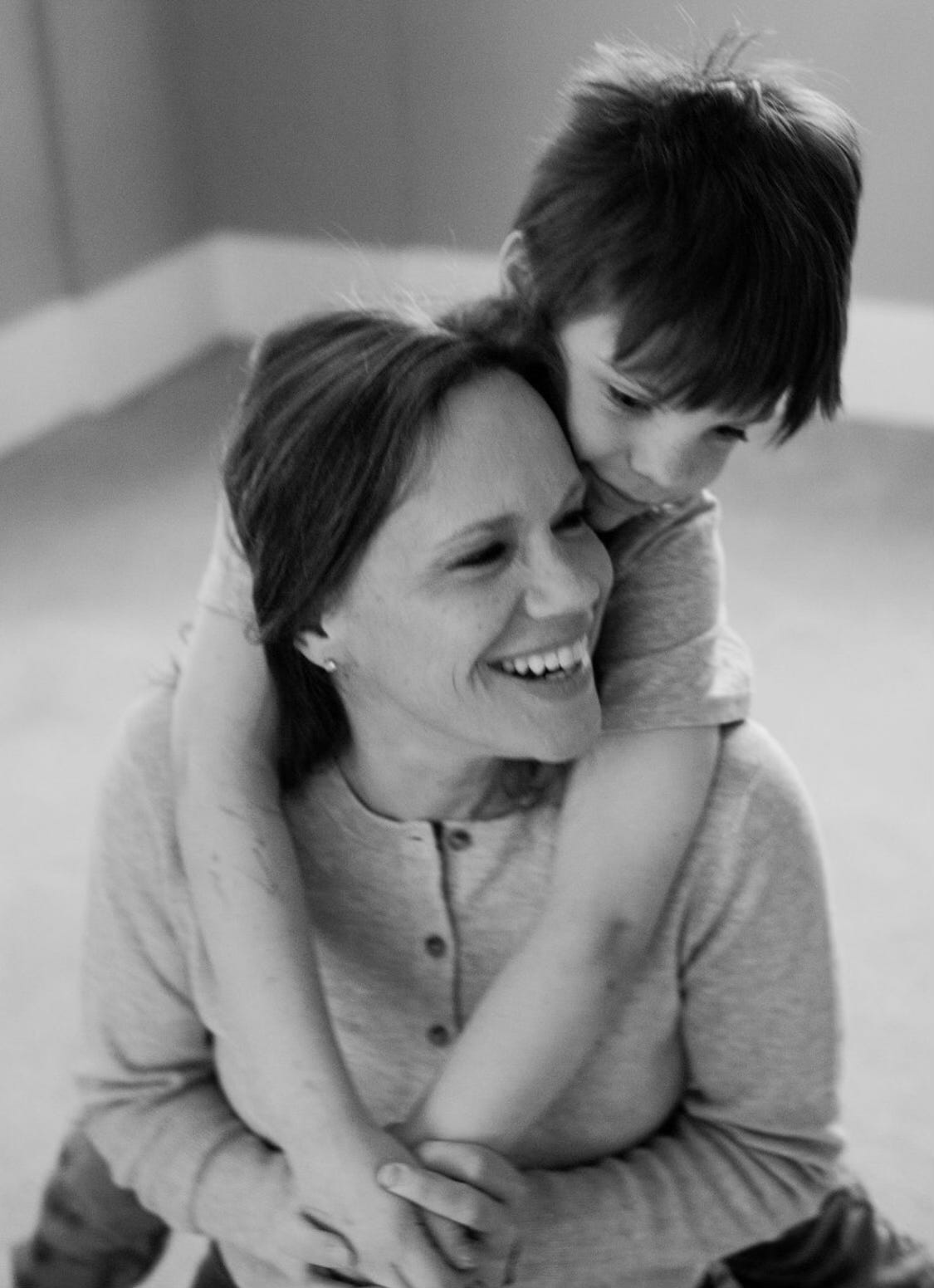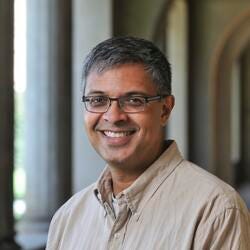“First of all, there are a whole lot of women out here who are not aspiring to be humble,” said then-Presidential candidate Kamala Harris on the “Call Her Daddy” podcast. In politics, such statements are known as “gaffes,” meaning unintentionally speaking the truth in public.
In fairness to the former Vice-President, who does want to be humble?
Braggadocio is President Trump’s brand. The newly-elected Commander-in-Chief deals only in pneumatic superlatives—his rhetoric a blimpfest of the biggest, the best, the never-before-seen-in-history. To hear him tell it, we are about to enter upon a “golden age.” (Not that anyone would mind, but still.)
Try to forget about partisanship for a moment. Think about this past year’s election as a cultural phenomenon—what a Martian might make of all the to-do. The adoring attention paid to both candidates and the billions of dollars contributed to their campaigns reveal our grotesque longing for power and privilege, if only via association.
Who does want to be humble? Really, no one. Not a single one of us, not by natural inclination, at least. Pride is mankind’s original sin.
In her remarks on “Call Her Daddy,” Harris was responding to a jibe by Governor Sarah Huckabee Sanders that Kamala Harris’s arrogance might be due to her lack of biological children. Kids keep us humble.
Again, forget about the charge and Harris’s defense as the stepmother of two children, and let’s tease out why kids keep us humble.
Little ones are constantly saying things and doing things we’d rather not have them say or do.
My middle son had a positive genius for this. I remember introducing him to an elderly, and, frankly, decrepit woman once, who also happened to be an old family friend. I hoped he would speak his name clearly, call her “mam,” express how nice it was to meet her, and if she offered her hand first, shake hands. All signs that I had raised him properly. Instead, he took in her grizzled appearance, and asked, “Are you getting ready for the big sleep?”
She turned and gave me a look I’ll never forget.
Kids keep us humble because they puncture our pretensions—the face we present to the world implying we have it all together, find no circumstance beyond our control, and are possessed of all wisdom in meeting life’s challenges.
Sure, they’ll wear the coordinated outfits for the Christmas card or let you take vacation photographs for the envy-inducing record of the family’s doings you are compiling on Facebook, but at the end of the day they have their own agency. Their decisions have an uncanny way of giving the lie to cherished falsehoods. Concoct whatever fantasies of a perfect life you may choose to entertain at your own risk. Children are like so many samurai swords dividing truth from illusion.
And yet, we feel that the way in which children expose our shortcomings and limitations is a good thing—at least, if we have any sense. Because they do help us come to terms with the people we really are as opposed to those we pretend to be. They make us aware of how much in life lies utterly beyond our control, how every part of our existence depends on other people, and how so much depends on gifts given, losses suffered, and promises betrayed or fulfilled. Raising children is an education in reality.
I’m not advocating self-loathing or other disordered views of our own worth. The Bible advises us to love others as we love ourselves, because the Scriptures presume that the instinct for self-preservation is natural and a good thing. “For no one ever hated his own flesh, but nourishes and cherishes it” (Eph 5:29 ESV). Nor does the Judeo-Christian tradition lack respect for personal agency: the choices we make matter not only in this life but into eternity.
We all need the fortitude to get up every morning, pull up our socks, and get on with the business of living. Sometimes, life’s challenges are such that we must call on all the resources of our character to meet them. Life’s inevitable trials test our formation and the way in which it’s been tempered through experience. In fact, we may only come to a deep recognition of what’s authentic to us through such difficult experiences. “We glory in our sufferings,” St. Paul writes, “because we know that suffering produces perseverance, perseverance, character, and character, hope” (Rom 5:3-4, NIV).
Raising children is an education in reality.
Cultural dynamics have always spurred us in the opposite direction. We imitate those we most admire, to the point of imagining ourselves like them whatever actual disparities exist. And letting others know it. How many conversations at cocktail parties start off with anecdotes about the “amazing” person someone has just met, the “fabulous” trip they’ve recently taken, or the whirlwind life has become after a promotion? Etc. We not only want to create a good impression but believe in our own publicity.
That’s who people are and always have been. Lately, we’ve been further encouraged to jettison any modesty in such claims in pursuit of “re-inventing” ourselves without regard to common sense and even the witness of conscience.
Jennifer Sey in a post on her Substack, “Sey Everything,” remarks on how our self-esteem culture has attempted to outlaw shame. She cites a favorite quote from Augusten Burroughs as being a fit self-description: “I myself am made entirely of flaws, stitched together with good intentions.
[This quote] asserts a humility that is sorely lacking in today’s culture. Can you imagine anyone saying this today? Everything is You go girl! books and podcasts and they all say the same thing: you’re awesome. You have no flaws. And anyone who doesn’t agree should be cut out of your life!
We are supposed to be proud of everything we are, everything we’ve done. We shout our abortions. Shame is a terrible thing (“no kink-shaming!) and total self-acceptance is the key to happiness…I reject all of that. Not everything we are is something to be proud of.
We need humility to make a comeback. The excessive pride touted as “self-esteem” by popular culture, social media, educators and therapists may be well-intentioned, but it has turned into a debilitating flaw.
Commonly, we have understood those with an inability to feel shame as suffering from major psychiatric conditions. They are sociopaths, psychopaths, and narcissists. Now denying the witness of conscience is touted as a path to liberation. As Jennifer Sey notes, much of contemporary culture advises us to reject any understanding of ourselves as flawed creatures. Despite all evidence to the contrary, we must take our god-like perfection for granted.
“We need humility to make a comeback,” Sey writes. This seems self-evident, but why? And what would be the nature of such a comeback?
In her article, Sey goes on to list what she sees as her personal character flaws. The implication is that humility allows us to see both the good and the bad in our characters and work to ameliorate what’s deficient. In other words, humility enables us to find the wisdom we need to pursue improvement or redemption.
If humility is not a disordered hatred of self, what is it then, and where—other than out of the mouths of babes—is it to be found?
The wisest man who ever lived, King Solomon, writes in Proverbs: “The fear of the Lord is the beginning of wisdom, and the knowledge of the Holy One is understanding” (9:10).
Countless commentaries and sermons have been devoted to what “fear” means here, and most of it seeks to assure us that “fear” doesn’t mean “terror.” The feeling being described, so commentators claim, is reverence or awe. I don’t know about that. Nearly every time an angel appears in the Bible, the first thing the angel feels compelled to say is “be not afraid.”
When the disciple Peter begins to conclude that Jesus is the Son of God, he can only exclaim, in what I take to be horror, “depart from me, for I am a sinful man, O Lord” (Luke 5:8, KJV).
If you imagine yourself standing alone before the God of the universe, and don’t feel overwhelmed, fearful, and even horror-stricken, I’m not sure you have much of an imagination.
The fear of the Lord is the beginning of wisdom because this “fear” is the essence of humility. Whatever emotions accompany the experience, such an encounter establishes one’s relationship vis-à-vis. God is God, and you are, distinctly, not.
The reason all manner of nonsensical notions about ourselves and our behavior can be entertained by our culture is that we have eliminated God and any sense of a moral order from our thinking. So, anything we imagine about ourselves can be true! “No judgment” has become our motto. Only believe! Imagine! We’ve Disneyfied ourselves.
Except, deep down, we know that’s not true.
Tucker Carlson has become fond of saying that the world is divided into two kinds of people. Those who think they are god, and those who know they are not.
(For comic relief, here’s Bill Murray confessing to Angie McDowell that he’s a god in Groundhog Day—”not the god, but one of them.”)
If humility is the beginning of wisdom, is it possible to pursue humility as a means of growing into a more profound understanding of the world and our place in it?
In St. Benedict’s Rule, the saint’s guide for monks living in community, he imagines humility as Jacob’s ladder, a means of spanning the distance between heaven and earth. Each additional step in humility becomes a means of ascending this ladder, as the will of God comes to dominate one’s behavior, one’s thoughts, and one’s inclinations, until finally doing God’s will becomes second nature. Humility is seen as a process of giving over one’s being, first in one’s behavior and then in the inclination of one’s thoughts, to God.
“When then the monk has ascended all these steps in humility, he will presently arrive at the love of God, which, being perfect, puts fear outside; and by means of which all that formerly he could not observe but with much fearfulness he will begin to keep without difficulty, as it were by habit become second nature…”
One might think that such humility and the wisdom it grants belongs only to those who like monks have taken themselves out of the world; people who live relatively carefree lives far from the centers of power and its responsibilities. But really this understanding of one’s position in life and one’s nature can and has been grasped by great leaders at the centers of power.
I came upon an instance of someone within the incoming administration who, unlike so many who ascend to positions of enormous power, possesses humility. He’s Dr. Jay Bhattacharya, Trump’s nominee to head the National Institutes of Health (NIH).
After the onset of Covid-19 and his public response to the crisis, Dr. Bhattacharya faced a withering barrage of criticism and loss of status within his profession that would have caused many others to despair. Instead, Dr. Bhattacharya remained true to his conviction and his calling. He sees his story as verifying a counter-cultural view of a person’s value and destiny.
As a physician, economist, and professor at Stanford University, where he was a senior fellow at Stanford’s Institute for Economic Policy Research, Dr. Jay, as he’s known, joined Martin Kulldorf, a professor of medicine at Harvard University, and Sunetra Gupta, a professor at Oxford University, as a co-author of The Great Barrington Declaration.
The authors opposed the lock-down strategy in response to Covid-19 adopted by the US government on the advice of Dr. Anthony Fauci and the head at the National Institutes for Health, Dr. Francis Collins. The authors of The Great Barrington Declaration cautioned against the collateral damages that would result from the lockdown strategy (i.e. the likely rise in suicides, the delay of other medical treatments leading to an increase in mortality rates, and the learning loss of millions of school children). The Declaration advocated for the isolation of those most vulnerable—the elderly and those with underlying co-morbidities—and letting the rest of the population resume normal life. Most would contract Covid, but their cases would be mild, and the population as a whole acquire herd immunity.
That’s’ when the storm broke out in Dr. Jay’s otherwise highly successful and stable life. Upon learning of The Great Barrington Declaration, Dr. Francis Collins wrote to Dr. Anthony Fauci calling for a “quick and devastating public takedown” of its authors, by characterizing them as “fringe epidemiologists.” This outrageous labeling of doctors at Stanford, Harvard, and Oxford was nevertheless adopted by the press and repeated countless times. (Dr. Collins has since called his view of Covid “very narrow,” and expressed regret for how the matter played out.)
Stanford turned on Dr. Jay. He was subjected to an investigation over allegations of research misconduct related to his Covid-19 studies, though the investigation found no wrongdoing. Additionally, he reported being pressured by Stanford’s Chair of Medicine to cease media appearances and interviews about Covid-19. “They questioned my integrity, my values.” His life was “completely overturned,” and he “couldn’t eat or sleep for months.” He received death-threats and lost 30 pounds.
He was able to endure, he says, because “people were attacking a version of me that had already died when I was 18.”
Raised a Hindu, Dr. Jay became a Christian as a senior at Claremont High. His view of personal identity underwent a revolution. He had believed that what “made someone important, what gave them moral worth, almost, was how smart they were.” Through his conversion he came to understand “how evil that idea was.” He saw the overweening pride, the hubris, inspired by personal accomplishments as immoral: a source of sin. This understanding helped him withstand the taunts of those belittling him, implying that as a “fringe epidemiologist” he must not be very smart. (Quotes attributed to Dr. Bhattacharya come from this article in the WSJ.)
He also believed he was right on the science, which, in fact, he turned out to be.
Long before the Covid crisis, he had come to see his aptitudes and expertise as gifts meant to be used in the service of others. Instead of a passport to status, they gave his life purpose: one that transcended other’s opinions. He knew where he stood with God, in obedience to whom he found his true worth.
He was called “to use my knowledge so that I can make discoveries and suggests policies that would improve the health and well-being of the poor, the vulnerable, and the working-class.” When he “saw the widespread adoption of policies that were not grounded in science, that were harming the welfare of the vulnerable, particularly children,” he felt he “had an obligation to speak. Because what’s the purpose of my career otherwise?”
King Solomon was reported to be the wisest man who ever lived, and yet in Ecclesiastes, he finds “everything under the sun” vanity. “Vanity of vanities, all is vanity.”
Solomon’s despair is echoed in the lives of countless Gen Z members, who cite a lack of purpose as their biggest challenge, and, often, the motivator of their self-destructive behavior.
Solomon’s own sense of life’s meaninglessness gives way, at last, to the hope he finds inhabiting the world. “Fear God and keep his commandments, for this is the whole duty of man” (Eccl. 12:13). The same understanding sustained Dr. Jay Bhattacharya, and has, in fact, men and women through the ages.
None of us wants to be humble, and so we are by first inclination in rebellion against the fear of the Lord. All the world’s glittering prizes have such appeal. Yet, humility is the mother of all virtues, and virtue the only place to take a stand when it comes time to take a stand.






Thanks, Alexander!
When Attlee was praised for being a humble man, Winston Churchill quipped: "He has much to be humble about."